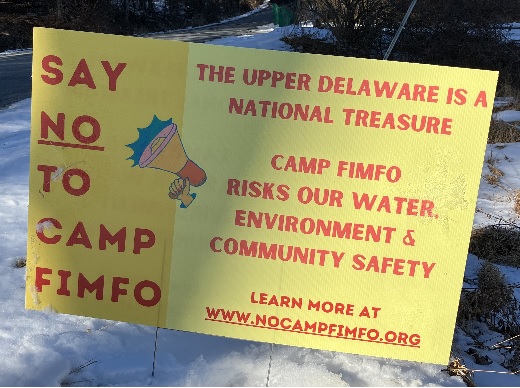Inventory of Oil and Gas Well Stray Gas Cases
June 15, 2012Gov. Corbett Turns Up Pressure on Neighbors
June 19, 2012A.G. SCHNEIDERMAN ANNOUNCES LANDMARK
AGREEMENT WITH CHESAPEAKE APPALACHIA TO ALLOW
LANDOWNERS TO RENEGOTIATE NATURAL GAS LEASES
In Addition To Allowing Over4,400 Leases To Be Renegotiated, Chesapeake Agrees To Pay $250K For Cost Of State Investigation
Schneiderman: Landowners Will Have The Opportunity To Negotiate A Better Deal For Their Land
BINGHAMTON – Attorney General Eric T. Schneiderman today announced a landmark agreement with Chesapeake Appalachia, L.L.C. to allow over 4,400 landowners who were locked into unfavorable natural gas leases the opportunity to renegotiate with the energy corporation. Chesapeake, based in Oklahoma, is licensed to do business in New York State for natural gas exploration and extraction from lands in certain areas of the state. In addition, the Attorney General’s agreement requires Chesapeake to pay the state $250,000 as reimbursement for the costs of the investigation.
“Make no mistake about it – this agreement will provide a safety net for thousands of landowners by allowing them the opportunity to negotiate fairer lease terms, both financial and environmental, regardless of their existing contracts. For landowners across the state, this deal literally will provide a new lease on life,” said Attorney General Schneiderman. “My office will continue to stand up for the rights of the public in every corner of this state to ensure that New Yorkers have a fighting chance when they’re up against powerful interests.”
As part of today’s agreement with Attorney General Schneiderman, Chesapeake has agreed that landowners with leases that were extended as a result of the Department of Environmental Conservation’s (DEC) environmental review into high-volume hydraulic fracturing, or “fracking,” have the right to negotiate leases with other gas companies for more favorable environmental or financial terms. Chesapeake will either match those terms or release the landowners’ original lease. The agreement includes leases which have expired or will expire prior to December 31, 2013.
Terms of the Attorney General’s agreement with Chesapeake include:
- Chesapeake will not use the Environmental Review by the DEC as a reason to extend any leases expiring after December 31, 2013;
- Chesapeake will release leases that have been extended using only the Extension of Term where a blank has been left for the negotiated factor. Some of the contracts had blanks in them where a monetary amount should have been;
- All other landowners, except those extended by an Extension of Term provision, with leases having expired, or expiring on or before December 31, 2013, have the right to negotiate bona fide offers from other companies; Chesapeake will then either match the new offer, or release their lien;
- Chesapeake will still be allowed to extend leases that have an Extension of Term provision if it does not contain any blanks and has not yet expired;
- Chesapeake will make quarterly reports to the Office of Attorney General on the number of leases it has renewed, matched and released;
- Number of Leases to be released outright: 50 (8,604 acres);
- Leases subject to being matched: 4,365 (255,579 acres); and
- Leases with the option to be extended by Chesapeake: 1,865 (96,524 acres).
In June 2009, Chesapeake sent letters notifying owners with leases whose terms were set to expire that the company was electing to extend those leases. In these letters, Chesapeake adopted the position that it could not perform any exploration and development operations for shale wells until the DEC completed preparing a Supplemental Generic Environmental Impact Statement (SGEIS) for high-volume hydraulic fracturing. In some cases, Chesapeake had leases with landowners that went back to the mid-to-late 1990’s.
Chesapeake told landowners its leases contained provisions allowing Chesapeake to extend the terms under force majeure, purported force majeure and “covenants” clauses and/or other common law rights based on the principles of force majeure. Force majeure is a clause found in contracts that exempts the contracting parties from fulfilling their obligations for causes that could not be anticipated.
Today’s agreement allows landowners, who were under Chesapeake’s force majeure contract claims, to be released.
Beginning in approximately July 2009, Chesapeake modified the previously described force majeure letter to add a claim that it could extend leases by making delayed rental payments to landowners because no drilling had occurred also informing them that the leases were extended indefinitely until the DEC completed the SGEIS process and began issuing permits for high-volume hydraulic fracturing. This was known as making “prescribed payments.”
Robert H. Wedlake, a partner at the law firm of Hinman, Howard & Kattell, LLP, located in Binghamton, represents many landowners in New York who have been affected by Chesapeake’s attempts to extend landowner’s gas leases. Mr. Wedlake said, “This is a significant benefit for not only the clients that my firm represents but for all the landowners in New York State that have had their leases extended against their will; I feel that Attorney General Schneiderman has done a good job for the landowners in New York State and this resolution can help landowners out of a difficult problem facing hundreds of landowners throughout New York. I commend Attorney General Schneiderman for his hard work on behalf of the landowners of New York.”
Scott Kurkoski, of Levene, Gouldin and Thompson, represents the Joint Landowner Coalition of New York an organization working with 70,000 members who have pledged over 800,000 acres of land for natural gas development. Kurkoski said, “We are pleased that Attorney General Schneiderman has worked to protect the interests of landowners. Today’s agreement will provide some certainty for thousands of landowners whose leases have been extended beyond their primary terms.”
The case was handled by Assistant Attorney General Michael J. Danaher, Jr. under the supervision of former Assistant Attorney General-in-Charge of the Binghamton Regional Office Dennis C. McCabe, Assistant Attorney General-in-Charge of the Binghamton Regional Office James Shoemaker and Executive Deputy Attorney General for Regional Affairs Martin J. Mack.



